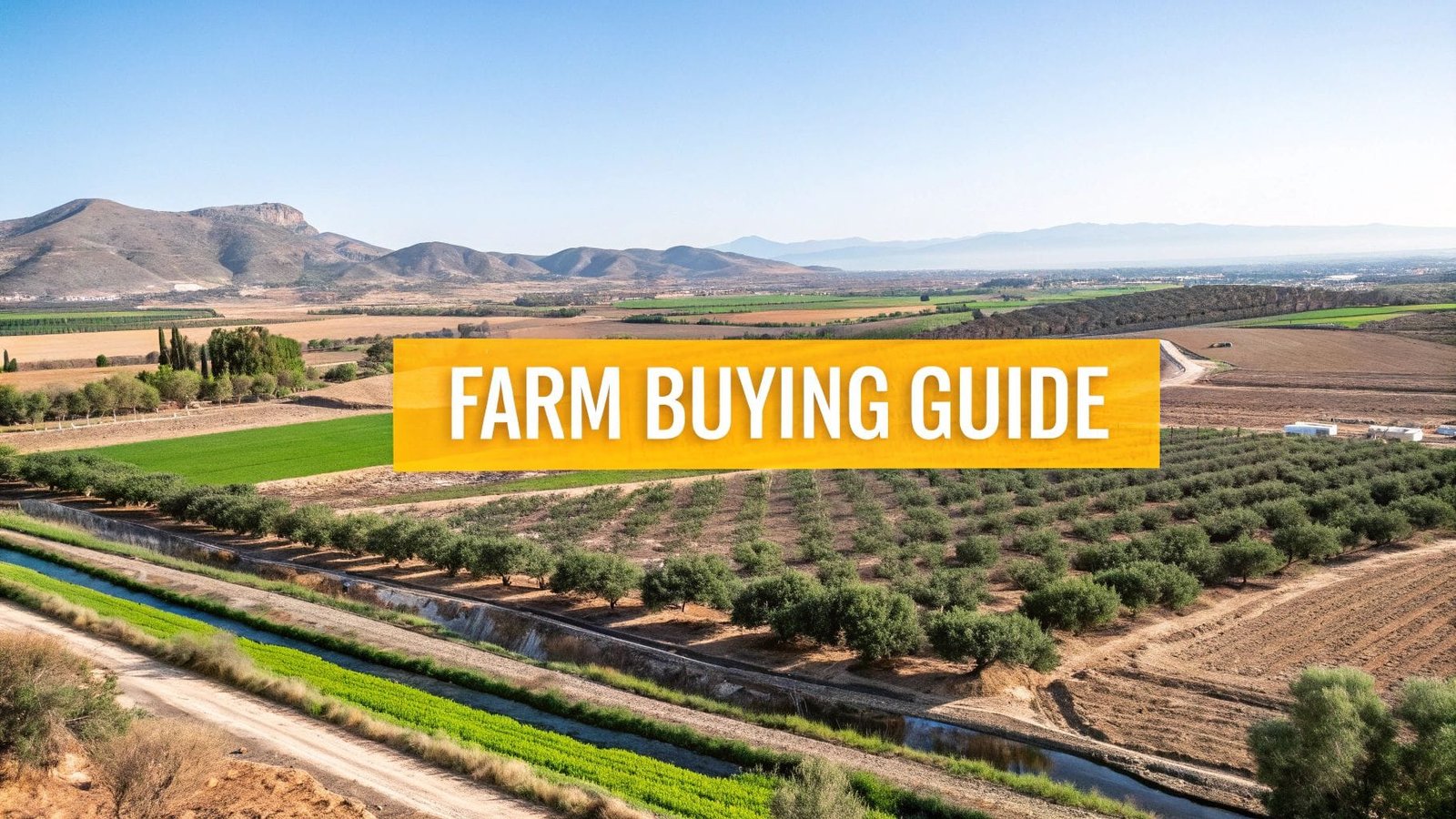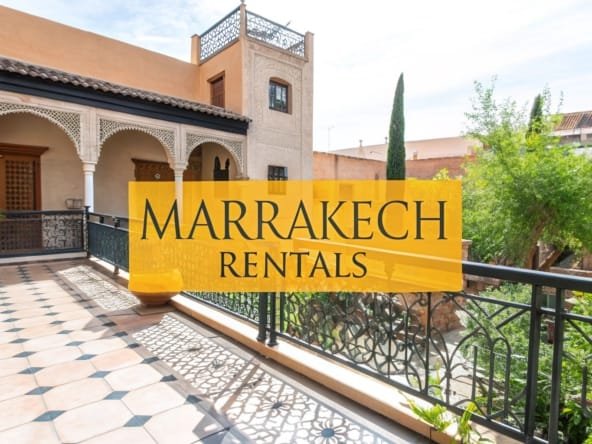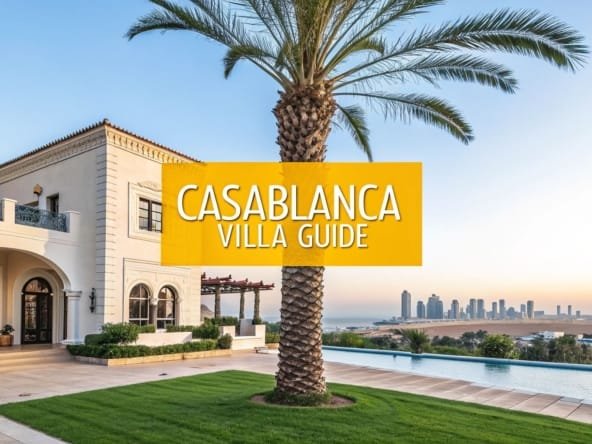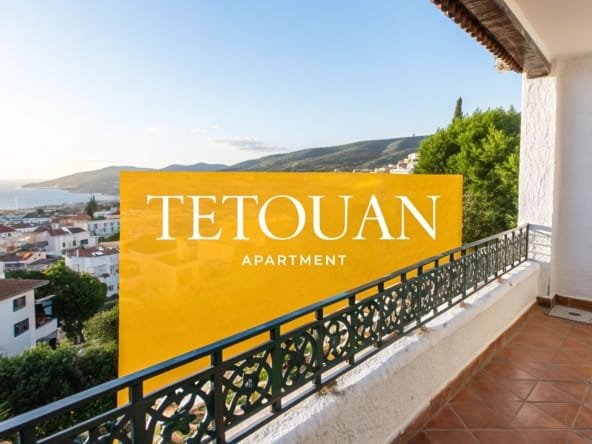Finding a farm for sale in Morocco—what we locally call a ferme a vendre maroc—is about more than just buying a piece of land. You’re stepping into an industry that forms the very backbone of the Moroccan economy. The market is a fascinating blend of timeless, family-run smallholdings and sprawling, modern agricultural enterprises. Opportunities are everywhere, fuelled by solid domestic demand and profitable export markets for world-class produce like citrus, olives, and argan.
Your success, however, will come down to how well you understand the unique strengths of each region and your ability to navigate the local legal and agricultural terrain.
Getting to Grips with Morocco's Agricultural Real Estate Market
Before you even think about looking at listings, it's crucial to get a real feel for Morocco's agricultural landscape. This isn't just a property purchase; it's an investment into a vibrant industry that's deeply woven into the country's identity and its plans for the future. The potential is massive, but you need to appreciate the nuances right from the start.
Agriculture's economic influence here is immense. When you combine farming, forestry, and fishing, the sector adds up to an incredible $15.58 billion USD in value. It’s a cornerstone of the national economy, making up nearly 15% of the country's GDP and, amazingly, employing about 45% of the entire workforce. For anyone wanting to dig deeper, it's worth exploring the latest agricultural economic data to see these trends for yourself.
This economic importance brings a level of stability and opportunity for anyone searching for a ferme a vendre maroc. You'll find that government programmes often support agricultural growth, pushing to modernise farming methods and increase yields.
To get started, it's helpful to have a clear framework for your evaluation. The table below outlines the essential factors you'll need to consider before you even begin your search.
Key Considerations for Buying a Farm in Morocco
| Factor | Key Questions to Ask | Why It Matters |
|---|---|---|
| Water Access | What are the registered water rights (droit d'eau)? Are there functioning wells? Is it connected to a modern irrigation system? | Water is the most critical resource in Morocco. Without secure and sufficient water access, the land's agricultural potential is severely limited, regardless of size or price. |
| Soil Quality & Topography | Has the soil been tested for its composition and health? Is the land flat, sloped, or terraced? What crops has it historically supported? | The soil dictates what you can grow profitably. Topography affects irrigation, erosion, and what machinery you can use, directly impacting operational costs and crop viability. |
| Legal Status | Is the property properly titled (titré)? Are there any liens, disputes, or zoning restrictions? Is it designated as agricultural land? | Clean, verified title is non-negotiable. Unclear ownership or legal restrictions can derail a purchase or lead to costly disputes down the line. |
| Infrastructure & Access | How good are the roads leading to the farm? Is there reliable electricity? Are there existing buildings like barns, storage, or housing? | Poor access and a lack of basic infrastructure can dramatically increase your setup and operational costs. Existing, well-maintained buildings add significant value. |
| Regional Specialisation | What crops is this region known for? Is there a local ecosystem of suppliers, co-ops, and export channels for those crops? | Tapping into an established regional speciality (e.g., olives in Meknes) gives you access to a support network, experienced labour, and established markets, reducing your business risk. |
Thinking through these points upfront will save you a world of headaches later and ensure you're looking for a property that truly aligns with your goals.
The Forces Shaping the Market
Several powerful factors influence the value and potential of farmland across the country. Understanding what drives the market will help you look past the asking price and see the true long-term value of a property.
Here are the core market drivers you need to keep on your radar:
- International Demand: Morocco is a major agricultural exporter, especially to the European Union. This creates a steady demand for high-quality produce, which means farms that can grow sought-after crops like citrus, tomatoes, and berries often fetch a premium.
- Government Initiatives: National strategies like the "Green Morocco Plan" and "Generation Green" have funnelled serious investment into modernising the sector. These programmes focus on improving irrigation and supporting farmers, so properties in areas that have benefited from this support are often a much smarter buy.
- Water Scarcity: This is the big one. Access to water is arguably the single most critical factor in a farm's value. Everything depends on its water rights (droit d'eau), the number and condition of its wells, and its connection to irrigation networks. This is an absolute must-do in your due diligence.
- Crop Specialisation: Different regions have become famous for specific, high-value crops. Think argan in the Souss Valley, olives around Meknes, or citrus groves near Agadir. The type of crop a farm is best suited for has a direct and powerful impact on its potential profitability.
I’ve seen it happen too many times: a buyer gets fixated on the price per hectare. But a cheap plot with poor water access or worn-out soil is a terrible investment compared to a pricier, well-equipped farm that's ready to turn a profit.
Ultimately, your hunt for a ferme a vendre maroc needs to be guided by a clear strategy that accounts for these market forces. When you understand the economic context and the realities on the ground, you shift from being just another buyer to becoming a savvy, strategic investor.
How to Find and Evaluate Moroccan Farm Listings
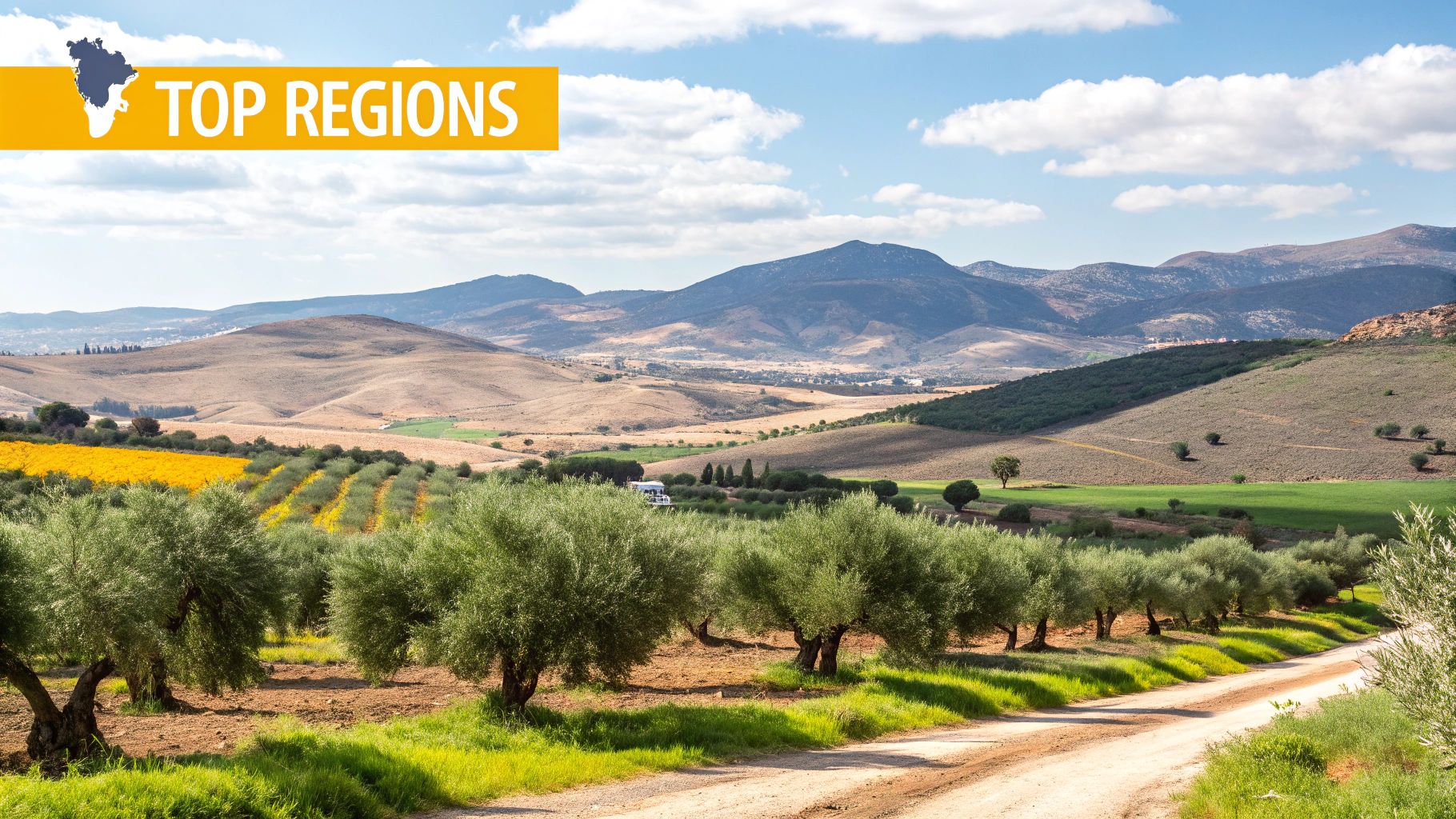
Finding the perfect farm in Morocco isn't about scrolling through endless online portals. It's a boots-on-the-ground endeavour where the best opportunities often never see a public advertisement. Success means building the right local relationships and knowing exactly what to look for when you step onto a piece of land.
The most effective search strategy blends modern tech with old-school networking. While you might spot some larger agricultural properties on international real estate websites, the real prizes are almost always found through local connections.
Building Your Local Search Network
The whole game changes when you connect with people who have deep, specialised knowledge of agricultural land. A generalist residential agent in Marrakech simply won’t have the insight needed to assess a citrus grove near Agadir.
You need to focus your energy on two key local players:
- Specialised Real Estate Agents: Look for agents who focus specifically on terrains agricoles (agricultural lands). These are the experts who understand soil composition, what crops thrive in which regions, and, crucially, they have a network of sellers who prefer to keep their sales private.
- Local Notaries (Notaires): The notaire is a central figure in every single Moroccan property deal. Taking the time to build a relationship with a notary in your target region can be invaluable. They are often the first to know when a property is coming up for sale, especially in cases of inheritance, long before it ever hits the open market.
Imagine a conversation with a local notaire who mentions a family is quietly preparing to sell a farm they've held for generations. This is the kind of inside track that gives you a massive advantage over other buyers just watching public listings.
Your network on the ground is your most powerful asset. An agent or notary who understands your specific goals can filter opportunities, saving you countless hours and steering you away from problematic properties.
The Critical On-Site Evaluation
Once you've got a shortlist, the physical inspection is where the real work begins. A farm's true potential is written in its soil, its water sources, and its infrastructure. You have to evaluate these with a sharp, critical eye.
Don't just go for a casual walk-through. Your site visit needs to be methodical, focusing on the core assets that will ultimately determine the farm's viability and profitability.
Assessing Water Rights and Soil Health
In Morocco, water is everything. The concept of droit d'eau (water rights) is absolutely paramount, and you must verify exactly what water access is legally tied to the property's deed.
During your visit, get answers to these questions:
- Wells: How many are on the property? Are they all working? Ask about their depth and, most importantly, their water levels at the end of the driest season.
- Irrigation Systems: Is there a modern drip irrigation setup, or does it rely on older, less efficient methods like flood irrigation? Check the condition of pumps, pipes, and any reservoirs.
- Water Quality: A simple test kit can give you a quick reading on salinity levels. High salinity can be a deal-breaker for many crops.
The soil is just as critical. Look for obvious signs of erosion, heavy compaction, or nutrient depletion. A basic soil analysis from a local agricultural lab costs very little but can save you from a catastrophic mistake. While a working farm is one thing, understanding different land types is crucial for any purchase. For those also looking at raw land, our guide on terrain a vendre au Maroc offers more detailed advice.
Evaluating Infrastructure and Access
The state of the buildings and how easily you can get to the farm directly impact your upfront costs and long-term operational headaches. A farm with crumbling barns or a washed-out access road isn't a bargain—it's a money pit waiting to happen.
Pay close attention to these practical details:
- Buildings and Structures: Get inside the barns, storage sheds, and any staff housing. You're looking for structural integrity, but also for basics like functional electricity and plumbing.
- Access Roads: Can a large truck or heavy farm machinery get to the property easily, all year round? A muddy track in winter can become a logistical nightmare during harvest.
- Fencing and Boundaries: Are the property lines clearly marked and properly fenced? Boundary disputes with neighbours are a common and expensive problem you want to avoid.
- Proximity to Markets: How far is it to the nearest town, to your suppliers, and to transport hubs? Being too remote drives up the cost of everything, from buying fertiliser to shipping your final product.
Getting to Grips with Moroccan Property Law
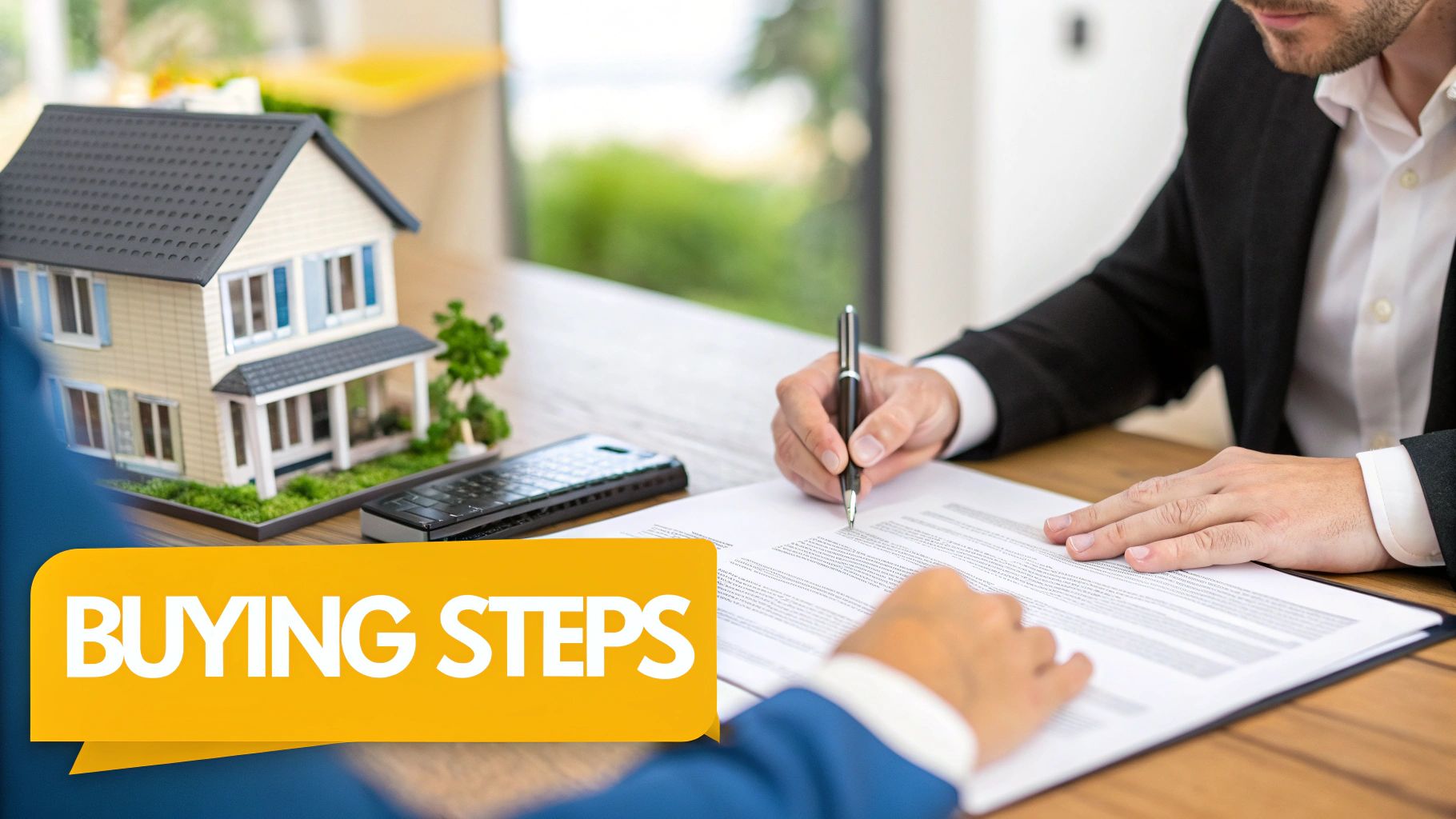
Before you get too far down the road, it's essential to understand that buying a farm in Morocco isn't like buying property back home. The legal landscape here is unique, and getting a handle on it is the single most important thing you can do to protect your investment. This isn't just about ticking boxes; it's about making sure the land you buy is truly yours, without any surprises.
At the core of it all is how land ownership is documented. This is the first and most critical legal concept you'll run into when looking for a ferme a vendre maroc, and it has a massive impact on the security of your purchase.
Understanding Titre Foncier vs. Moulkia
In Morocco, you'll encounter two main types of land deeds: the Titre Foncier and the Moulkia. Frankly, the difference between them is night and day.
A Titre Foncier is the gold standard. It’s a definitive, state-guaranteed title registered with the national land registry (Agence Nationale de la Conservation Foncière, du Cadastre et de la Cartographie, or ANCFCC). Every titled property gets a unique number and a file detailing its exact boundaries, size, and legal history. This system provides rock-solid legal security. You know exactly what you own.
On the other hand, a Moulkia is a traditional, unregistered deed. It’s a bit like an old-school gentleman's agreement, recognised legally but based on witness statements and historical claims. The problem? It can be challenged, often by long-lost heirs or neighbours claiming a boundary dispute. Many older family farms in rural areas are still held this way.
My advice is simple: for any serious investor, a property with a clean Titre Foncier is non-negotiable. While you can convert a Moulkia to a Titre Foncier, the process—called 'immatriculation'—can be a long, drawn-out, and expensive headache. Save yourself the trouble and prioritise titled properties from the very beginning.
The peace of mind a Titre Foncier provides is worth every dirham. To really get into the weeds of this document, you can learn more about the Titre Foncier in Arabic and why it's so fundamental to Moroccan real estate.
The Central Role of the Notaire
In Morocco, the notaire isn't just another lawyer. They are a public official, appointed by the king, who acts as a neutral third party in every property deal. Their job isn’t to represent you or the seller, but to ensure the entire transaction is legal and correctly executed for everyone involved.
Think of the notaire as the guardian of the process. They handle all the critical steps:
- Running the Checks: They'll verify the seller’s identity and confirm they have the legal right to sell the property.
- Title Verification: This is huge. The notaire obtains an official ownership certificate (certificat de propriété) to make sure the land is free of any mortgages, liens, or other nasty surprises.
- Drafting the Paperwork: From the initial agreement to the final deed, the notaire prepares all the official documents.
- Managing the Money: Your deposit is held safely in their escrow account, and they oversee the final transfer of funds at closing.
Finding a reputable and experienced notaire early on is one of the best decisions you'll make. They are your first line of defence against any potential legal issues.
Key Documents in the Buying Process
The path from making an offer to holding the keys involves a few key legal documents. Knowing what they are and what they mean will help you feel in control of the process.
- Offer to Purchase (Offre d'Achat): This isn't always a formal step, but a written offer shows you're a serious buyer. It lays out the price you're offering and any conditions you might have.
- Preliminary Sales Agreement (Compromis de Vente): This is where things get serious. It's the first legally binding contract that locks in the price and terms. At this point, you'll typically pay a deposit, usually 10% of the purchase price, which is held by the notaire.
- Final Deed of Sale (Acte de Vente): This is the final document. You and the seller sign it in the notaire's presence, officially transferring ownership. The notaire then registers it with the land registry, making it all official.
Once the Acte de Vente is signed and registered, the notaire will get you a new certificat de propriété with your name on it. That piece of paper is your ultimate proof of ownership—your farm is officially yours.
Picking the Right Spot: A Guide to Morocco's Top Farming Regions
When it comes to Moroccan agriculture, location isn't just a detail—it’s the bedrock of your entire operation. Every region has its own agricultural personality, shaped by its unique climate, soil quality, and, most importantly, access to water. Getting this choice right from the start means matching your business vision with the realities on the ground.
As you start searching for a ferme a vendre maroc, you're doing more than just buying a plot of land; you're buying into a specific ecosystem. A citrus farm in the Souss-Massa region, for instance, thrives because of its sun-drenched climate and well-oiled export channels. An olive grove, on the other hand, flourishes in the more temperate conditions around Meknes for completely different reasons.
Souss-Massa: The Engine Room of Citrus and Vegetables
The Souss-Massa region, with Agadir at its centre, is the undisputed heartland of Moroccan horticulture. The climate here is mild and sunny year-round, creating the perfect environment for citrus fruits, tomatoes, and early vegetables—much of it headed straight for the high-value European market. The local infrastructure is built for one thing: large-scale production and export.
But all this productivity comes with a serious catch: water. The region is heavily dependent on underground aquifers, which are under immense pressure. If you're looking at a farm here, your due diligence on water rights and well capacity needs to be airtight.
Meknes-Tafilalet: The Olive and Vineyard Heartland
Stretching from the historic city of Meknes towards the Atlas Mountains, this area is the traditional soul of Moroccan farming. It's famous for its sprawling olive groves that produce some of the country's best olive oil, alongside vast vineyards and cereal fields.
The climate is more continental, with cooler winters and hot summers, which suits these crops perfectly. You'll often find that land prices are more approachable than in Souss-Massa, and the farming know-how runs deep. This makes it a fantastic choice for anyone looking to invest in classic, high-value products like olive oil or wine.
One thing I've learned is that regional specialisation creates an incredible support system. When you buy an olive farm in the Meknes region, you’re not just getting land. You're plugging into generations of local expertise, established processing facilities, and a direct pipeline to buyers both at home and abroad.
Sizing Up Regional Climate Risks
No matter where you decide to plant your flag, getting a handle on climate-related risks is non-negotiable. Morocco has been grappling with some tough climatic shifts that hit farm operations hard.
We've seen extended droughts where rainfall in key zones like Fes-Meknes and Casablanca-Settat dropped by over 60% below average in recent winters. This caused a major slump in cereal production for several years in a row, hammering home just how critical smart water management has become. For a deeper dive into this, it's worth reading the latest report on Morocco's agricultural conditions.
The market data below gives you a quick look at how prices and farm sizes can differ from one area to another.
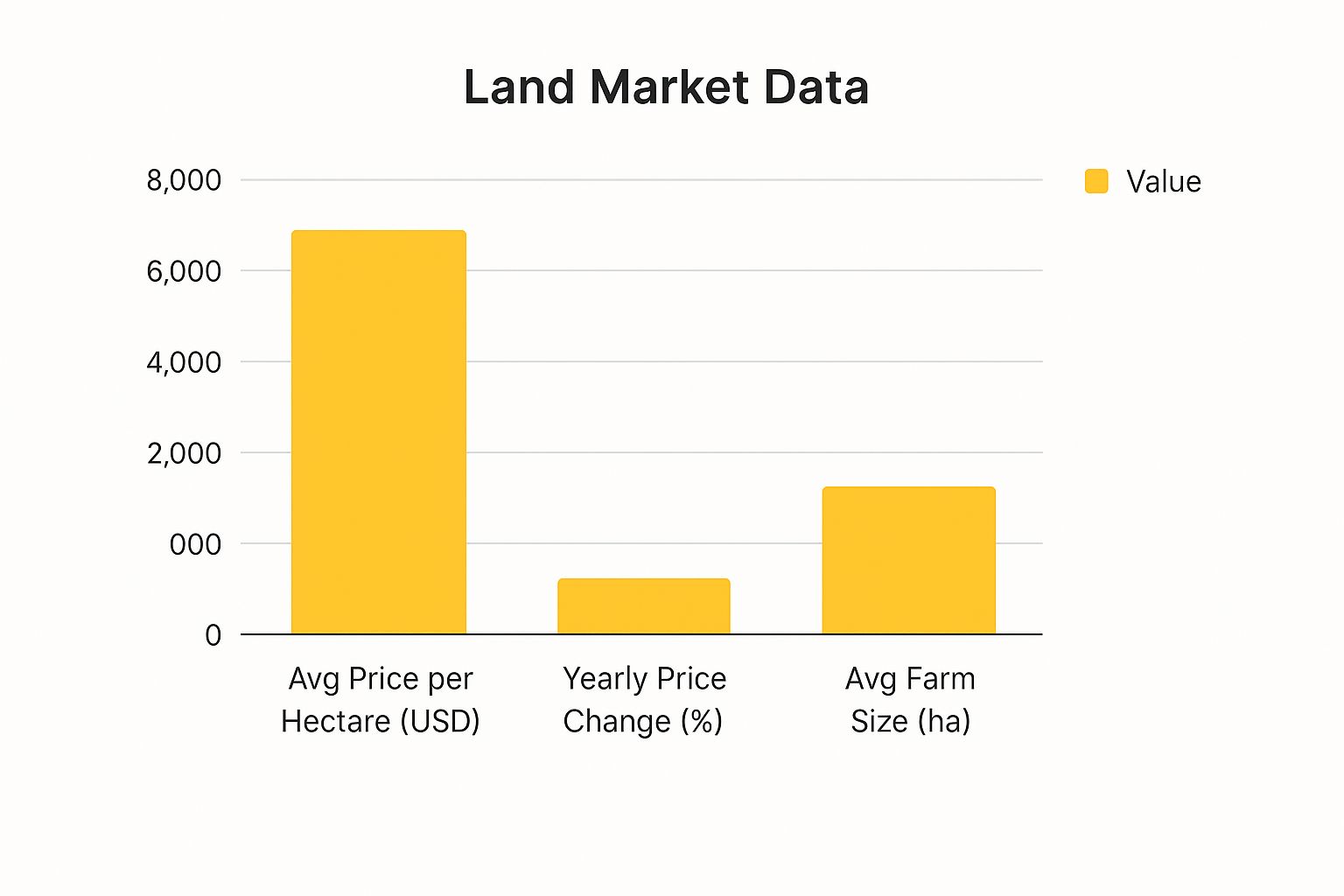
This data shows how regional demand and agricultural potential directly influence market dynamics.
To help you compare your options, here’s a breakdown of the key regions.
Comparison of Top Moroccan Agricultural Regions
| Region | Primary Crops | Climate Profile | Investment Suitability |
|---|---|---|---|
| Souss-Massa | Citrus, tomatoes, early vegetables, berries | Mild, sunny, arid | Ideal for large-scale, export-focused horticulture, but water scarcity is a major risk factor. High potential returns. |
| Meknes-Tafilalet | Olives, grapes, cereals, apples | Continental (hot summers, cold winters) | Excellent for traditional, high-value products like olive oil and wine. Deep-rooted expertise and established markets. |
| Gharb Plain | Sugar beets, sugarcane, rice, berries | Temperate, humid with reliable rainfall | A highly fertile region best for water-intensive industrial and food crops. Strong infrastructure. |
| Oriental | Almonds, figs, aromatic plants | Semi-arid to arid | A growing area for drought-resistant, high-value niche crops. Government incentives are encouraging new investment. |
| Marrakech-Safi | Olives, argan, citrus, apricots | Semi-arid with coastal influence | Diverse landscape supporting traditional groves and modern farming. Proximity to Marrakech offers agritourism potential. |
Each of these regions presents a unique set of pros and cons that you'll need to weigh against your specific goals.
Other Promising Agricultural Zones
While Souss-Massa and Meknes-Tafilalet get most of the attention, other areas offer compelling opportunities if you know where to look.
- Gharb Plain: Tucked away in the northwest, this is one of Morocco’s most fertile zones. It’s a powerhouse for sugar beets, sugarcane, rice, and berries, all thanks to its rich soils and plentiful water from the Sebou River.
- Oriental Region: Over near the Algerian border, this region is carving out a niche for almonds, figs, and aromatic plants. The government is actively pushing investment in drought-resistant crops here, making it one to watch.
- Marrakech-Safi: Known for its olive groves and, on the coastal side near Essaouira, the iconic argan trees, this region has a bit of everything. Its closeness to the tourist mecca of Marrakech also opens up interesting possibilities for agritourism ventures.
Ultimately, your decision should be a strategic one. You need to analyse the long-term prospects of your chosen crop, the sustainability of the region's water supply, and the quality of its infrastructure. Aligning your ambition with the right regional profile is the first, and most important, step towards building a successful farm in Morocco.
Financing Your Farm and Understanding Market Forces
Finding the perfect ferme a vendre maroc is a huge milestone, but it's just the beginning. The real work starts when you figure out how to pay for it and ensure it can thrive in Morocco's dynamic economic landscape. Turning a piece of land into a profitable business is all about securing the right funding and getting a firm grip on the market forces that will shape your farm's future.
For many buyers, whether they’re Moroccan residents or investing from abroad, local banks are the go-to for financing. While the specifics can vary from one bank to another, the core expectations are pretty standard. At the end of the day, they need to see a solid business plan, a clear picture of your own financial health, and proof that you know your way around the agricultural sector.
Securing a Loan from Moroccan Banks
When you walk into a Moroccan bank to ask for an agricultural loan, you're not just asking for money—you're asking them to invest in your vision. Your job is to present a case that’s so thorough and compelling they can't help but feel confident.
You'll need to have your documents in order. Typically, this includes:
- A Detailed Business Plan: This is your centrepiece. It needs to break down projected costs, realistic revenue forecasts based on your chosen crops, a solid market analysis, and a clear operational strategy.
- Proof of Down Payment: Banks will almost always expect you to have significant skin in the game. This shows you're personally and financially committed to making it work.
- Personal Financial History: Be prepared for a deep dive into your financial records. They need to assess your creditworthiness and your track record with managing debt.
- Property Details: The bank will require all the farm's legal paperwork, especially the Titre Foncier, to evaluate the property as collateral for the loan.
If you’re a non-resident, expect a few extra hoops to jump through, like proving the legal transfer of your funds into Morocco. My advice? Work with a bank that has a department dedicated to international clients. They’ll be far more familiar with the nuances and can make the process much smoother.
A quick tip from experience: securing a loan is a negotiation, not just an application. A well-researched business plan that shows a clear path to profitability doesn't just get you a 'yes'—it can also land you much better interest rates and terms.
Market Dynamics That Impact Your Investment
Beyond your own balance sheet, your farm's value and profitability are tied to much bigger economic currents. A savvy investor always looks beyond the property lines to understand the national and global factors at play. Morocco's agricultural sector doesn't exist in a bubble; it’s deeply connected to international markets. What happens in Brussels or Washington can have a direct impact on your bottom line.
Trade agreements are a perfect example. Morocco's agricultural fortunes are heavily influenced by import-export flows and tariff policies. For instance, the European Union is Morocco's biggest customer, buying around 60% of its agricultural exports. At the same time, Morocco imports other key agricultural goods. The U.S. alone exports tree nuts worth roughly $207.8 million and soybean meal valued at $179.5 million to Morocco, which is essential for the local animal feed industry. You can dig deeper into these trade relationships with the U.S. International Trade Administration's guide.
Building a Resilient Business Plan
When you understand these forces, you can build a business plan that’s less of a hopeful document and more of a robust strategy. Think ahead. How might fluctuating global commodity prices for crops like olives or citrus affect you? What if the EU changes its import standards? A plan that anticipates these variables is a plan built to last.
This kind of foresight is also crucial when you're finalising the purchase. The final price tag isn't just the sale price; it includes other closing costs, like notary fees. To budget properly, you need a clear idea of these expenses. Our guide on calculating notary fees in Morocco can give you that clarity. A comprehensive budget that accounts for these transactional costs is the key to a smooth closing, ensuring your financial planning is as solid as your agricultural strategy.
Common Questions About Buying a Farm in Morocco
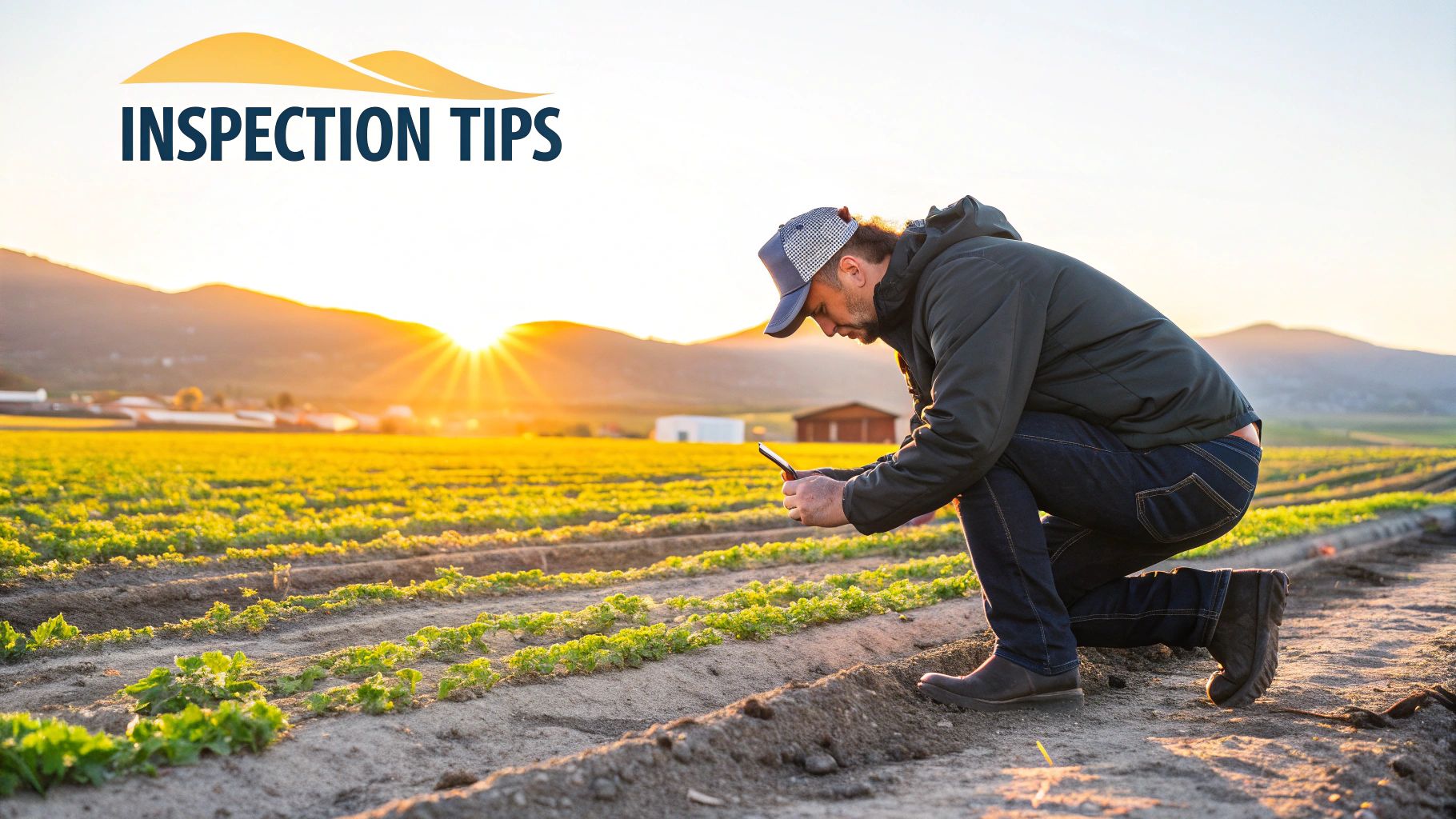
Starting the journey to buy a farm in Morocco always brings up a lot of questions. It’s a process that mixes unique legal rules with very real agricultural challenges, and getting clear answers from the get-go is the key to moving forward with any real confidence. Here, I'll walk you through some of the most common queries we hear from buyers just like you.
We'll cover everything from the nitty-gritty of foreign ownership laws to the practical side of managing a farm when you're not in the country. My goal is to give you straightforward, real-world advice that cuts through the complexity and helps you make a smart move on your search for the perfect ferme a vendre maroc.
Can Foreigners Legally Buy Agricultural Land?
This is almost always the first question I get, and for good reason. The short answer is yes, foreigners can absolutely purchase agricultural land in Morocco, but there's a critical detail you need to understand. The land has to be located outside of city limits.
While land ownership within designated urban areas is pretty straightforward, rural agricultural zones have a specific requirement: the purchase must be made through a company registered in Morocco. Don't let that sound intimidating; it's a standard, well-trodden path for foreign investors.
- Setting Up the Company: The most common vehicle for this is a Société à Responsabilité Limitée (SARL), which is very similar to an LLC or a limited liability company in other countries.
- Your Ownership: As a foreigner, you can be the principal shareholder, giving you full and effective control over the farm.
- Getting Professional Help: I can't stress this enough—you absolutely must work with a reputable Moroccan lawyer and accountant to set up the company correctly. This ensures you're compliant from day one.
Think of this structure not as a roadblock, but as the official, regulated pathway for welcoming foreign investment into Morocco's vital agricultural sector.
Understanding the Total Purchase Costs
The advertised price for a ferme a vendre maroc is just the starting point. To budget properly, you have to account for all the closing costs, which can add a significant chunk to your total outlay. Overlooking these can give you a nasty financial shock just as you're about to close the deal.
Here’s a breakdown of what you should plan for:
- Notary Fees (Frais de Notaire): These are calculated on a sliding scale based on the property's price, but they typically land somewhere between 1% and 1.5%.
- Registration and Stamp Duties: These are government taxes and are the biggest slice of the pie, usually coming in around 6% to 7% of the purchase price.
- Land Registry Fees (Conservation Foncière): This involves a fixed fee plus a percentage, generally adding up to about 1.5%.
A good rule of thumb I always share with clients is to budget an extra 10% on top of the agreed-upon sale price. This gives you a comfortable buffer to cover all the taxes and legal fees without any last-minute scrambling for funds.
Managing a Farm from Abroad
For many international buyers, the dream of owning a farm in Morocco doesn't necessarily include living there full-time. So, the big practical question becomes: can you actually run a farm from another country? The answer is a definite yes, but only if you put the right people and systems in place.
Success in remote management comes down to one thing: building a reliable local team. Your first and most important hire will be a trustworthy and skilled farm manager (gérant de ferme). This person is your representative on the ground, handling the day-to-day operations, managing the workers, and carrying out your vision for the farm.
Beyond that, you need a solid support network. That means building relationships with:
- Local suppliers for seeds, fertiliser, and machinery.
- A dependable accountant to manage payroll and local tax obligations.
- Agricultural co-operatives or distributors to help bring your products to market.
With today's communication technology and a team you can count on, managing your Moroccan farm from anywhere in the world isn't just possible—it's a common and successful model for many foreign owners here.
At Rich Lion Properties, we live and breathe the unique challenges and opportunities of buying agricultural land in Morocco. Our expertise goes far beyond simply showing you listings; we guide you through every single step, from getting the legal structure right to signing the final papers. Explore your options with a team that truly knows the terrain at https://richlionproperties.com.
